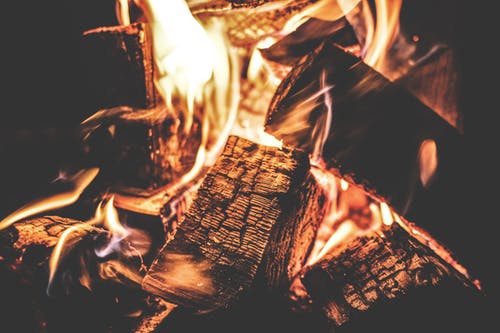
It is feasible to sell a home that has been damaged by fire. However, if the property has been significantly damaged or demolished due to the fire, you will need to be prepared for a number of problems both during the sale and after the settlement has closed.
Trying to sell a fire-damaged home is difficult because the sight of so much destruction puts off most buyers. Hiring a professional with experience restoring burned-out buildings could be a good idea if your home has noticeable burn marks anywhere. Some homeowners have employed upscale touches to help sell their fire-damaged properties.
Selling a Fire-Damaged Home
When you are thinking about selling your property after it has been damaged by fire, there are a few very crucial actions that you need to follow. These actions will help you maximize your chances of either selling the house quickly or earning the maximum possible value for it, depending on the state it is in right now.
1. Sell Property As-Is
When an insurance agent inspects the damage and a contractor is engaged, you may be presented with a list of things that need to be repaired. If the fire damage is too severe to justify the cost of repairs, you should think twice before accepting their offer.
Many buyers will be interested in your home if you price it in this range, and if they are ready to put money into repairs by a reputable damage restoration company, you may get more money for it than you would if you made them yourself.
2. Restore Before Selling
If you decide to fix your house after a fire, you’ll have to finish the repairs and sell it. You’ll need a real estate agent to present the property for sale unless the repairs are minor. Consider that even if they want to buy quickly, individuals don’t appreciate buying homes with evident issues that cost more than they’re prepared to spend. You should make every effort to have it ready for sale without needing an inspection.
When attempting to resell a fire-damaged home on your own, you will need to hire professionals for some repairs while handling others yourself. A professional isn’t required for minor repairs, but it’s important to remember that your work may be inspected if it’s not up to code. You can contact a water mitigation services provider for restoration projects.
3. Seller Financing
Offering seller financing is an excellent method to attract buyers who may not qualify for standard mortgages, whether you’re selling your home through a real estate agent or on your own.
If you offer seller financing, the buyer won’t pay interest, but you’ll receive monthly payments; once enough equity has been built up in the home, you can refinance without the buyer making any further payments or having to pay off the existing mortgage.
4. Sell for Cash
Another great choice would be to sell your home for cash, but this would require you to give up any property equity you may have built up. You won’t have to worry about making repairs, and you’ll be able to recoup some of your investment in a hurry because this kind of sale doesn’t entail any mortgages or ongoing payments. You can visit this page for more info.
5. Demolish and Sell the Land
After a fire, many people use the rule of thumb that a house is worth around half what it was before. If your house has been fire-damaged, demolishing it will allow you to sell the land separately. Selling to a real estate investor who intends to put down the building and replace it with a vacant lot is an option if you have no emotional ties to the building.
When the cost of fixing up a house exceeds the cost of starting fresh, it may be time to consider selling at land value. There may be additional elements at play that make it worthwhile to sell the house at its land value rather than attempt repairs.



